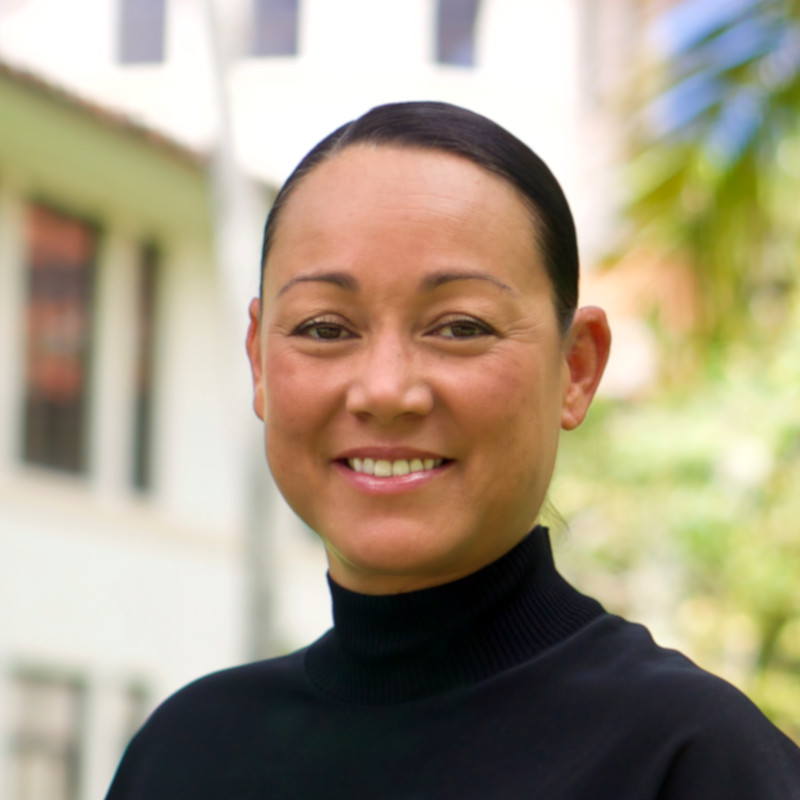
The UH Mānoa College of Education (COE)is offering a new year-long Ethnomathematics and STEM (science, technology, engineering, and mathematics) Institute With the addition of advanced-level mathematics and STEM-related studies, the institute is an expansion of the Ethnomathematics Summer Institute, led by Associate Professor of Mathematics Education Linda Furuto for the past five years. Applications are being accepted now. Furuto recently joined the COE Department of Curriculum Studies after serving as Associate Professor of Mathematics at UH West Oʻahu. There, she gained notoriety for her Ethnomathematics Summer Institute, which has been featured in numerous print, radio, and television media. This month, she was awarded an Elementary and Secondary Education Act (ESEA Title II) grant through the U.S. Department of Education.
“Dr. Furuto brings a fresh perspective to our college in teaching mathematics and preparing mathematics educators,” said COE Dean Donald B. Young. “She exudes excitement and a passion for mathematics that helps us discover mathematics all around us and provides insight into how we can prepare educators with a true sense of place.”
Defined by Brazilian mathematician Ubiratan D’Ambrosio as the intersection of culture, historical traditions, sociocultural roots, and mathematics, ethnomathematics encourages the investigation and adaptation of these concepts within and outside of the classroom. Furuto explained that the goal is to acknowledge cultural systems and frameworks that have existed since the beginning of time and to help teachers discover new pathways that foster student engagement through developing and supporting a high-quality teaching force. A strong proponent of finding relevance in real world applications, Furuto builds experiential and service learning into each field study.
Through an orientation, a series of professional development (PD) workshops, and a summer institute, participants engage in place-based learning at the Hawai‘i Institute of Marine Biology’s Coconut Island, Mokauea Island Fishing Village, and Kalaupapa National Historical Park on Moloka‘i as well as around the Hawaiian Islands while sailing with the Polynesian Voyaging Society aboard the Hōkūle‘a voyaging canoe.
According to countless testimonials, institute scholars make meaningful connections during these excursions and see first-hand the ‘why’ or ‘so what’ in the lessons. The very students who did not like math or understand why they should care are what drives Furuto to do all that she can to transform their learning experience while acknowledging the unique identities and significant roles they have to contribute to the process.
It is difficult to imagine that math did not come easy to Furuto, but she credits innovative teachers at Kahuku High School and Punahou School with helping her to realize that mathematics is everywhere. Growing up in Hauʻula on Oʻahu’s North Shore, spearfishing, diving, swimming, and surfing, her own inquiry and exploration began early. With the influence of teachers and a path that led her to Harvard and UCLA, Furuto returned home to inspire students and educators in Hawaiʻi to become top-ranked in mathematics.
Andreanna Banta, a UH West Oʻahu student, stated, “As a student, knowing about ethnomathematics makes me want to come to class. As I look ahead to my career, I want to go into education so I can inspire my students just as I have been inspired to make learning matter.”
Supporters and partners of the institute include Hawai‘i P-20 Partnerships for Education, State of Hawai‘i Department of Education, Polynesian Voyaging Society, Pacific Resources for Education and Learning, Pacific American Foundation, UH Mānoa Department of Mathematics, UH West O‘ahu, Kapi‘olani Community College, Leeward Community College, COE Department of Curriculum Studies, and University Laboratory School.
Applicants for the Ethnomathematics and STEM Institute must attend one mandatory pre-institute workshop in person (online for neighbor island applicants) on October 21, 22, or 23, 2013 at the UH Mānoa College of Education. The program is free by competitive application. Airfare and lodging are included for neighbor island participants, and priority is given to K–12 public, public charter, and private school STEM educators and those in the UH system. Upon completion of the institute, all participants become institute scholars and educators receive professional development credit or a stipend. For more information, please contact Dr. Linda Furuto at lfuruto@hawaii.edu.

